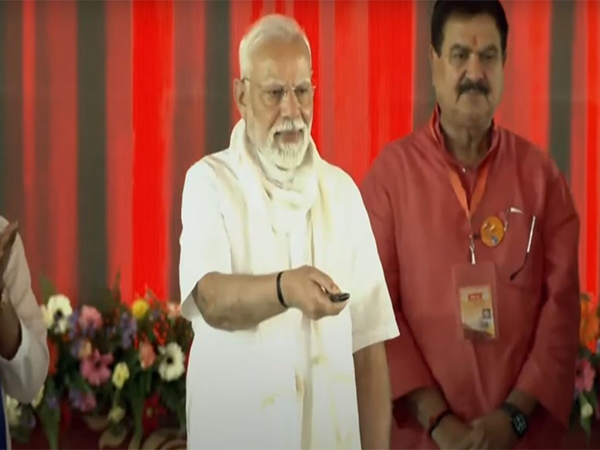
In September 2009, a day before the first Manchester derby of the season, Sir Alex Ferguson was asked by a journalist, during the pre-match press conference, whether Manchester United would ever go into a derby as the underdogs.
'Not in my lifetime!' the legendary United manager had replied. Nearly six-and-a-half years down the line, the tide has turned in City's favour in such a spectacular fashion that the gulf between the two teams couldn't have been wider since the Abu Dhabi United Group's takeover of City in 2008.
On one hand, Manchester City, having won two of the last four Premier League titles, are dreaming of winning the big prize: the UEFA Champions League title. The club's appointment of Pep Guardiola as their next manager has once again reaffirmed their ambitions.
On the other hand, Manchester United seem content with fighting for a place in the top 4. The club has failed to win a major trophy since the retirement of Sir Alex Ferguson, and despite extravagant spending under Louis van Gaal, have failed to pose a challenge for any of the trophies.
What went wrong for United? How did City, who were playing in the third-tier of English football a decade-and-a-half back, overtake their city rivals as the best-run club in Manchester?
Throwing money at problems, but sensibly
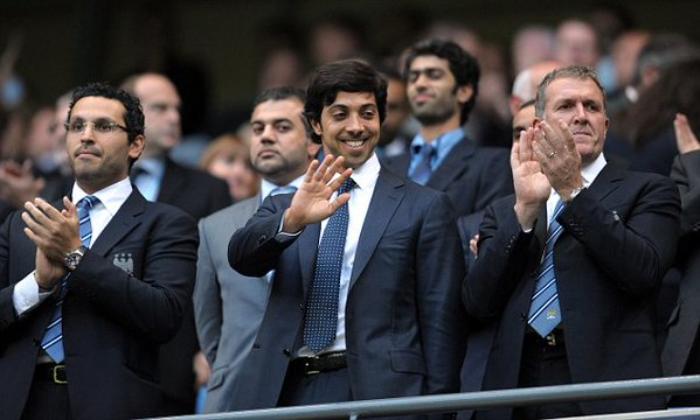
Photo: Twitter
When oil money fuelled City into becoming one of the richest clubs in the world, many comparisons were drawn to the Blackburn Rovers side of the early-90s. British industrialist Jack Walker had invested a fortune in the English club in the late-80s and early-90s, eventually propelling the club to Premier League title in 1994-95.
Blackburn's luck, however, fizzled out soon due to poor planning. Sir Alex Ferguson's Manchester United continued to be the dominant force in English football, and only Arsene Wenger's Arsenal managed to pose a continuous challenge to the Red Devils following Blackburn's fall from grace.
The major difference between today's Manchester City and Jack Walker's Blackburn is both sides' contrasting long-term planning strategies. The two sides have been known to throw money at their problems, but City have been more sagacious in their approach.
After the takeover of City in 2008, the Abu Dhabi United Group followed a transfer strategy which would allow success in the long-run. Barring a failed approach for Kaka, the club chased targets who would help them achieve the minimum target of Champions League football in the short-run.
The transfer strategy, though not entirely perfect, saw them bring in players with the aim of winning the title in four-five years' time. From the Craig Bellamys in 2009 to the Sergio Agueros in 2011, the club seemed to have well-defined transfer targets in line with their goals for the respective season.
Look at the club's squad today. There is a quality replacement for every player in the first team. From Premier League front-runners, the club is well on its way to establishing itself as a European heavyweight.
Youth academy and the quest for success under Guardiola
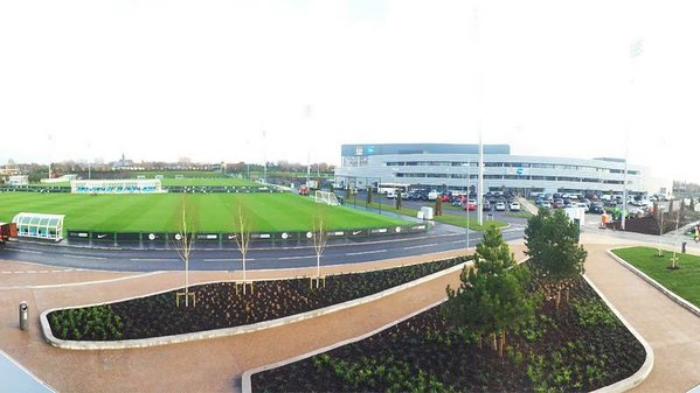
Photo: Twitter
The owners of the club have also invested a considerable amount of money in their academy, and it is no longer a secret that City have a better-run youth program than United currently. In 2014, the club opened its new facilities, for which it spent a staggering 200 million pounds.
The U13 and U15 sides are the champions of England in their age-groups, with other age-group sides also performing commendably in recent years. It is clear that a great supply line of players is set to come out of the club in a few years' time.
In the recent past, ex-United players like Phil Neville, Darren Fletcher and Robin van Persie have opted to send their kids to the City academy, instead of United. United legend Paul Scholes also publicly called City as the superior performers, when it came to youth development.
In contrast, United's academy has been on a decline in recent years. The number of players coming into the first team has dipped, starting from the last few years of Sir Alex's managerial reign, and City's recent upgrade means that United have the inferior of academy facilities.
With Guardiola coming in, the City management will hope to see the implementation of a footballing philosophy that the Spanish tactician undertook at Barcelona. Today, the Catalan giants still seem to be reaping the benefits from a system that Guardiola set up during his four years at the club.
With quite a few youngsters waiting for a first-team chance, Guardiola looks like the right manager to help change City's image of being the graveyard of young talents, as well as create a new footballing dynasty.
What next for United?
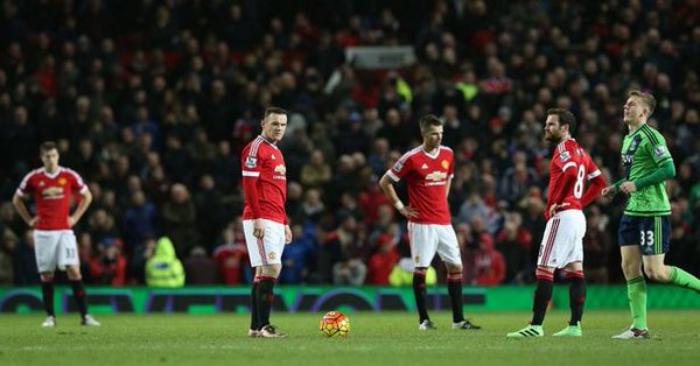
Photo: Twitter
For over two decades and a half, United had one of the best managers in the history of football at the helm of the club. It was Sir Alex Ferguson's managerial brilliance that covered up for the severe mismanagement at the club's board level since the 2004 takeover by the Glazers.
Ferguson's United managed to compete for the major honours despite a significant toning down on transfer spendings. In 2009, United responded to losing Cristiano Ronaldo and Carlos Tevez by bringing in Antonio Valencia and Michael Owen.
Despite a major deterioration in the quality of the squad during his last few years as manager, Ferguson delivered United two more league titles and an appearance in the Champions League final. United's 2010-11 title-winning side was probably the third or fourth-best squad in the league on paper, but Ferguson managed to pull paper over the cracks by winning the league.
In the post-Sir Alex era, United's American owners, however, have been ruthlessly exposed. The fact that the club had no long-term vision, no well-defined transfer strategy till today, is open for everyone to see.
The club has failed to adapt to the realities of modern-day football on the aftermath of Ferguson's retirement. Moyes and Van Gaal's failures are only part of a larger problem, and the onus is on Ed Woodward and the Glazers to change the situation in the foreseeable future.
City's appointment of Pep Guardiola comes a major statement from the owners of the club, and the ball is in United's court to respond. It is wouldn't be surprising if Van Gaal is relieved of his duties at the end of the season, and a famous managerial name like Jose Mourinho brought in.
However, a manager of Mourinho's stature will only guarantee success for the club in the short run, unless backed up by some prudent planning at the boardroom level. For the Glazers, this is the perfect opportunity to correct the mistakes of the past, and win the support of the United fans.
Being one the greatest sporting institutions of the world, United can not afford to be content with the mediocrity that has become symptomatic of the post-Sir Alex Ferguson era.



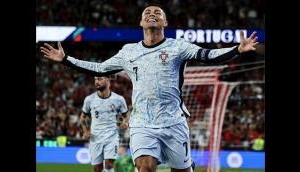
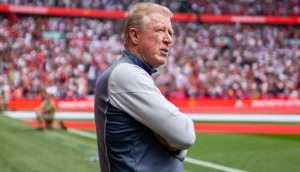

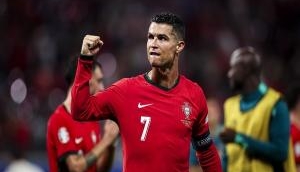
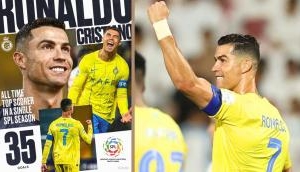
![BJP's Kapil Mishra recreates Shankar Mahadevan’s ‘Breathless’ song to highlight Delhi pollution [WATCH] BJP's Kapil Mishra recreates Shankar Mahadevan’s ‘Breathless’ song to highlight Delhi pollution [WATCH]](https://images.catchnews.com/upload/2022/11/03/kapil-mishra_240884_300x172.png)

![Anupam Kher shares pictures of his toned body on 67th birthday [MUST SEE] Anupam Kher shares pictures of his toned body on 67th birthday [MUST SEE]](https://images.catchnews.com/upload/2022/03/07/Anupam_kher_231145_300x172.jpg)






